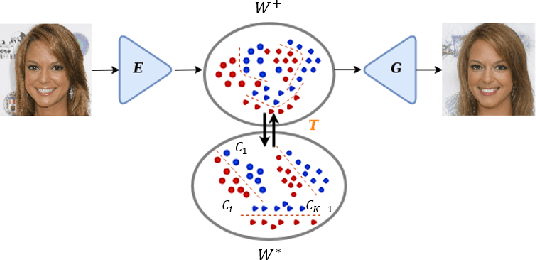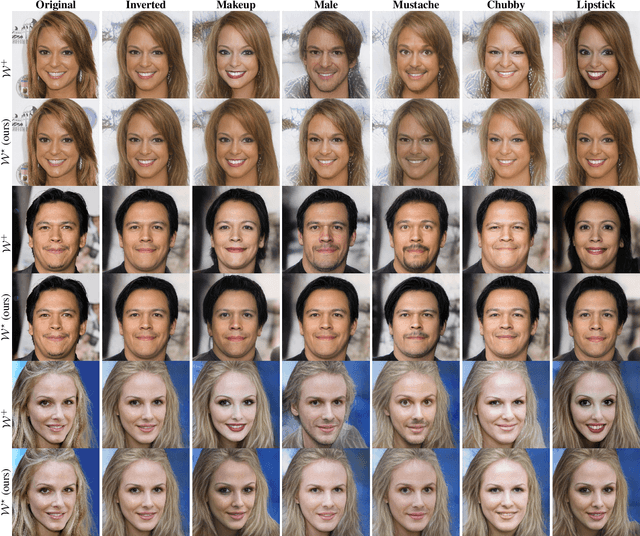Get our free extension to see links to code for papers anywhere online!Free add-on: code for papers everywhere!Free add-on: See code for papers anywhere!
Bharath Bushan Damodaran
Semantic Unfolding of StyleGAN Latent Space
Jun 29, 2022Figures and Tables:





Abstract:Generative adversarial networks (GANs) have proven to be surprisingly efficient for image editing by inverting and manipulating the latent code corresponding to an input real image. This editing property emerges from the disentangled nature of the latent space. In this paper, we identify that the facial attribute disentanglement is not optimal, thus facial editing relying on linear attribute separation is flawed. We thus propose to improve semantic disentanglement with supervision. Our method consists in learning a proxy latent representation using normalizing flows, and we show that this leads to a more efficient space for face image editing.
* Accepted at ICIP22
Via
 Add to Chrome
Add to Chrome Add to Firefox
Add to Firefox Add to Edge
Add to Edge